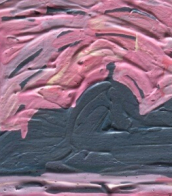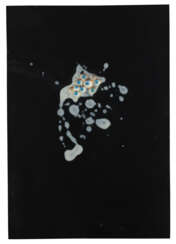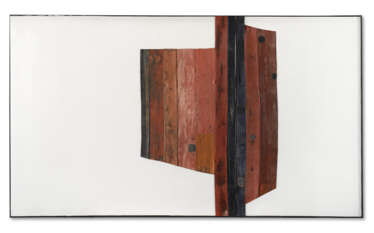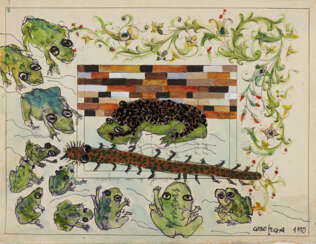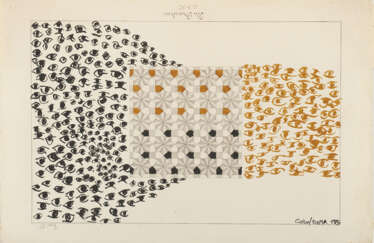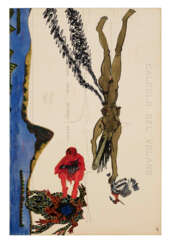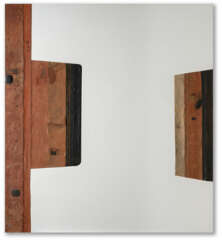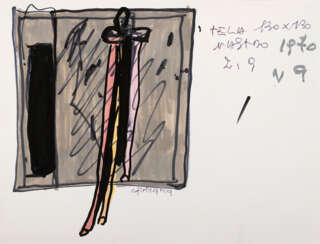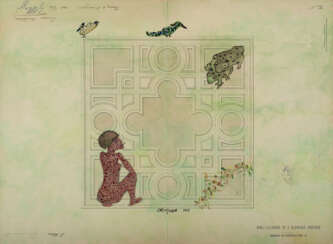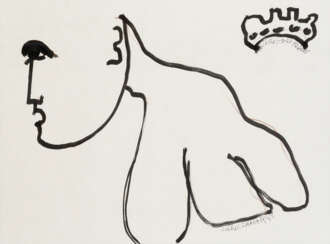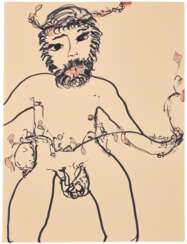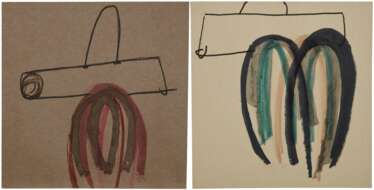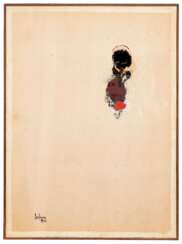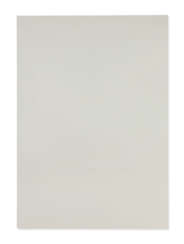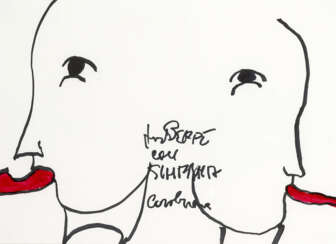Carol Rama (1918 - 2015) — Auction price
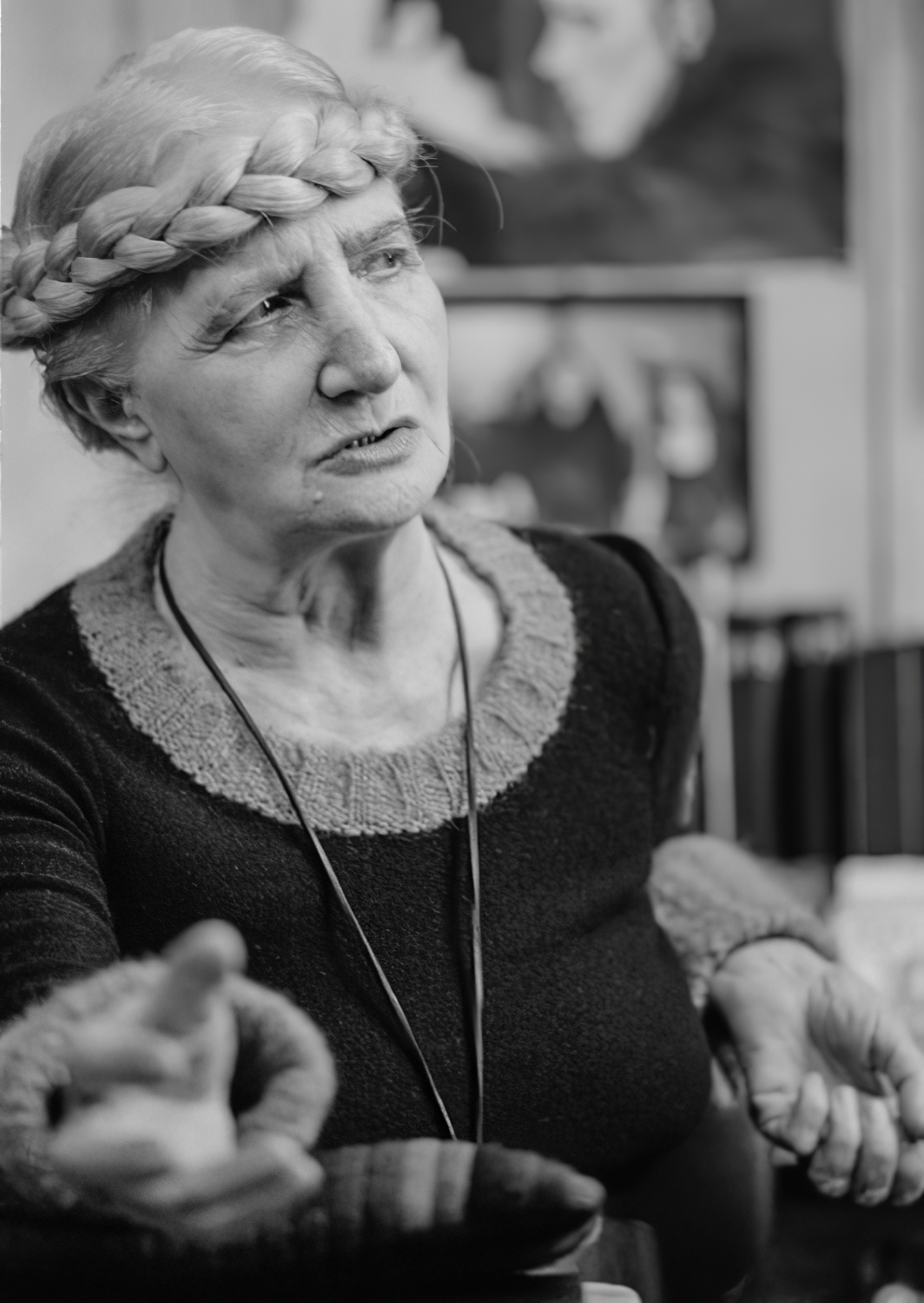
Carol Rama, actually Olga Carolina Rama, was an Italian self-taught artist. Her paintings embrace erotic and sexual identity with particular references to female sensuality. Mussolini's fascist regime deemed her work obscene and they were stigmatised as pornography.
By the early 1950s, Karol Rama was painting irregular geometric compositions of rhythmic rhombuses and squares, often connected by long spider-like lines or forming a directed field of implied movement.
Gradually she began to abolish the geometric conventions of concrete art. And after more than thirty years of inventing poisonous abstractions, Rama returned to figuration.
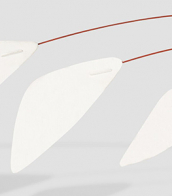

Carol Rama, actually Olga Carolina Rama, was an Italian self-taught artist. Her paintings embrace erotic and sexual identity with particular references to female sensuality. Mussolini's fascist regime deemed her work obscene and they were stigmatised as pornography.
By the early 1950s, Karol Rama was painting irregular geometric compositions of rhythmic rhombuses and squares, often connected by long spider-like lines or forming a directed field of implied movement.
Gradually she began to abolish the geometric conventions of concrete art. And after more than thirty years of inventing poisonous abstractions, Rama returned to figuration.
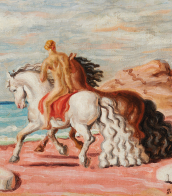

Carol Rama, actually Olga Carolina Rama, was an Italian self-taught artist. Her paintings embrace erotic and sexual identity with particular references to female sensuality. Mussolini's fascist regime deemed her work obscene and they were stigmatised as pornography.
By the early 1950s, Karol Rama was painting irregular geometric compositions of rhythmic rhombuses and squares, often connected by long spider-like lines or forming a directed field of implied movement.
Gradually she began to abolish the geometric conventions of concrete art. And after more than thirty years of inventing poisonous abstractions, Rama returned to figuration.
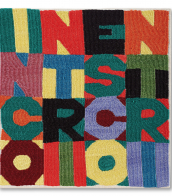

Carol Rama, actually Olga Carolina Rama, was an Italian self-taught artist. Her paintings embrace erotic and sexual identity with particular references to female sensuality. Mussolini's fascist regime deemed her work obscene and they were stigmatised as pornography.
By the early 1950s, Karol Rama was painting irregular geometric compositions of rhythmic rhombuses and squares, often connected by long spider-like lines or forming a directed field of implied movement.
Gradually she began to abolish the geometric conventions of concrete art. And after more than thirty years of inventing poisonous abstractions, Rama returned to figuration.


Carol Rama, actually Olga Carolina Rama, was an Italian self-taught artist. Her paintings embrace erotic and sexual identity with particular references to female sensuality. Mussolini's fascist regime deemed her work obscene and they were stigmatised as pornography.
By the early 1950s, Karol Rama was painting irregular geometric compositions of rhythmic rhombuses and squares, often connected by long spider-like lines or forming a directed field of implied movement.
Gradually she began to abolish the geometric conventions of concrete art. And after more than thirty years of inventing poisonous abstractions, Rama returned to figuration.
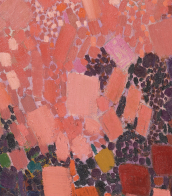

Carol Rama, actually Olga Carolina Rama, was an Italian self-taught artist. Her paintings embrace erotic and sexual identity with particular references to female sensuality. Mussolini's fascist regime deemed her work obscene and they were stigmatised as pornography.
By the early 1950s, Karol Rama was painting irregular geometric compositions of rhythmic rhombuses and squares, often connected by long spider-like lines or forming a directed field of implied movement.
Gradually she began to abolish the geometric conventions of concrete art. And after more than thirty years of inventing poisonous abstractions, Rama returned to figuration.
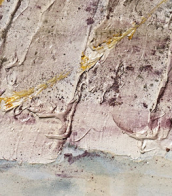

Carol Rama, actually Olga Carolina Rama, was an Italian self-taught artist. Her paintings embrace erotic and sexual identity with particular references to female sensuality. Mussolini's fascist regime deemed her work obscene and they were stigmatised as pornography.
By the early 1950s, Karol Rama was painting irregular geometric compositions of rhythmic rhombuses and squares, often connected by long spider-like lines or forming a directed field of implied movement.
Gradually she began to abolish the geometric conventions of concrete art. And after more than thirty years of inventing poisonous abstractions, Rama returned to figuration.
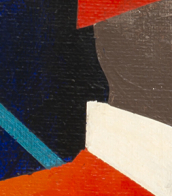

Carol Rama, actually Olga Carolina Rama, was an Italian self-taught artist. Her paintings embrace erotic and sexual identity with particular references to female sensuality. Mussolini's fascist regime deemed her work obscene and they were stigmatised as pornography.
By the early 1950s, Karol Rama was painting irregular geometric compositions of rhythmic rhombuses and squares, often connected by long spider-like lines or forming a directed field of implied movement.
Gradually she began to abolish the geometric conventions of concrete art. And after more than thirty years of inventing poisonous abstractions, Rama returned to figuration.


Carol Rama, actually Olga Carolina Rama, was an Italian self-taught artist. Her paintings embrace erotic and sexual identity with particular references to female sensuality. Mussolini's fascist regime deemed her work obscene and they were stigmatised as pornography.
By the early 1950s, Karol Rama was painting irregular geometric compositions of rhythmic rhombuses and squares, often connected by long spider-like lines or forming a directed field of implied movement.
Gradually she began to abolish the geometric conventions of concrete art. And after more than thirty years of inventing poisonous abstractions, Rama returned to figuration.


Carol Rama, actually Olga Carolina Rama, was an Italian self-taught artist. Her paintings embrace erotic and sexual identity with particular references to female sensuality. Mussolini's fascist regime deemed her work obscene and they were stigmatised as pornography.
By the early 1950s, Karol Rama was painting irregular geometric compositions of rhythmic rhombuses and squares, often connected by long spider-like lines or forming a directed field of implied movement.
Gradually she began to abolish the geometric conventions of concrete art. And after more than thirty years of inventing poisonous abstractions, Rama returned to figuration.
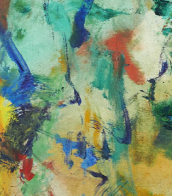

Carol Rama, actually Olga Carolina Rama, was an Italian self-taught artist. Her paintings embrace erotic and sexual identity with particular references to female sensuality. Mussolini's fascist regime deemed her work obscene and they were stigmatised as pornography.
By the early 1950s, Karol Rama was painting irregular geometric compositions of rhythmic rhombuses and squares, often connected by long spider-like lines or forming a directed field of implied movement.
Gradually she began to abolish the geometric conventions of concrete art. And after more than thirty years of inventing poisonous abstractions, Rama returned to figuration.


Carol Rama, actually Olga Carolina Rama, was an Italian self-taught artist. Her paintings embrace erotic and sexual identity with particular references to female sensuality. Mussolini's fascist regime deemed her work obscene and they were stigmatised as pornography.
By the early 1950s, Karol Rama was painting irregular geometric compositions of rhythmic rhombuses and squares, often connected by long spider-like lines or forming a directed field of implied movement.
Gradually she began to abolish the geometric conventions of concrete art. And after more than thirty years of inventing poisonous abstractions, Rama returned to figuration.


Carol Rama, actually Olga Carolina Rama, was an Italian self-taught artist. Her paintings embrace erotic and sexual identity with particular references to female sensuality. Mussolini's fascist regime deemed her work obscene and they were stigmatised as pornography.
By the early 1950s, Karol Rama was painting irregular geometric compositions of rhythmic rhombuses and squares, often connected by long spider-like lines or forming a directed field of implied movement.
Gradually she began to abolish the geometric conventions of concrete art. And after more than thirty years of inventing poisonous abstractions, Rama returned to figuration.
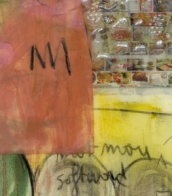

Carol Rama, actually Olga Carolina Rama, was an Italian self-taught artist. Her paintings embrace erotic and sexual identity with particular references to female sensuality. Mussolini's fascist regime deemed her work obscene and they were stigmatised as pornography.
By the early 1950s, Karol Rama was painting irregular geometric compositions of rhythmic rhombuses and squares, often connected by long spider-like lines or forming a directed field of implied movement.
Gradually she began to abolish the geometric conventions of concrete art. And after more than thirty years of inventing poisonous abstractions, Rama returned to figuration.
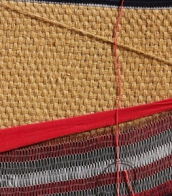

Carol Rama, actually Olga Carolina Rama, was an Italian self-taught artist. Her paintings embrace erotic and sexual identity with particular references to female sensuality. Mussolini's fascist regime deemed her work obscene and they were stigmatised as pornography.
By the early 1950s, Karol Rama was painting irregular geometric compositions of rhythmic rhombuses and squares, often connected by long spider-like lines or forming a directed field of implied movement.
Gradually she began to abolish the geometric conventions of concrete art. And after more than thirty years of inventing poisonous abstractions, Rama returned to figuration.
